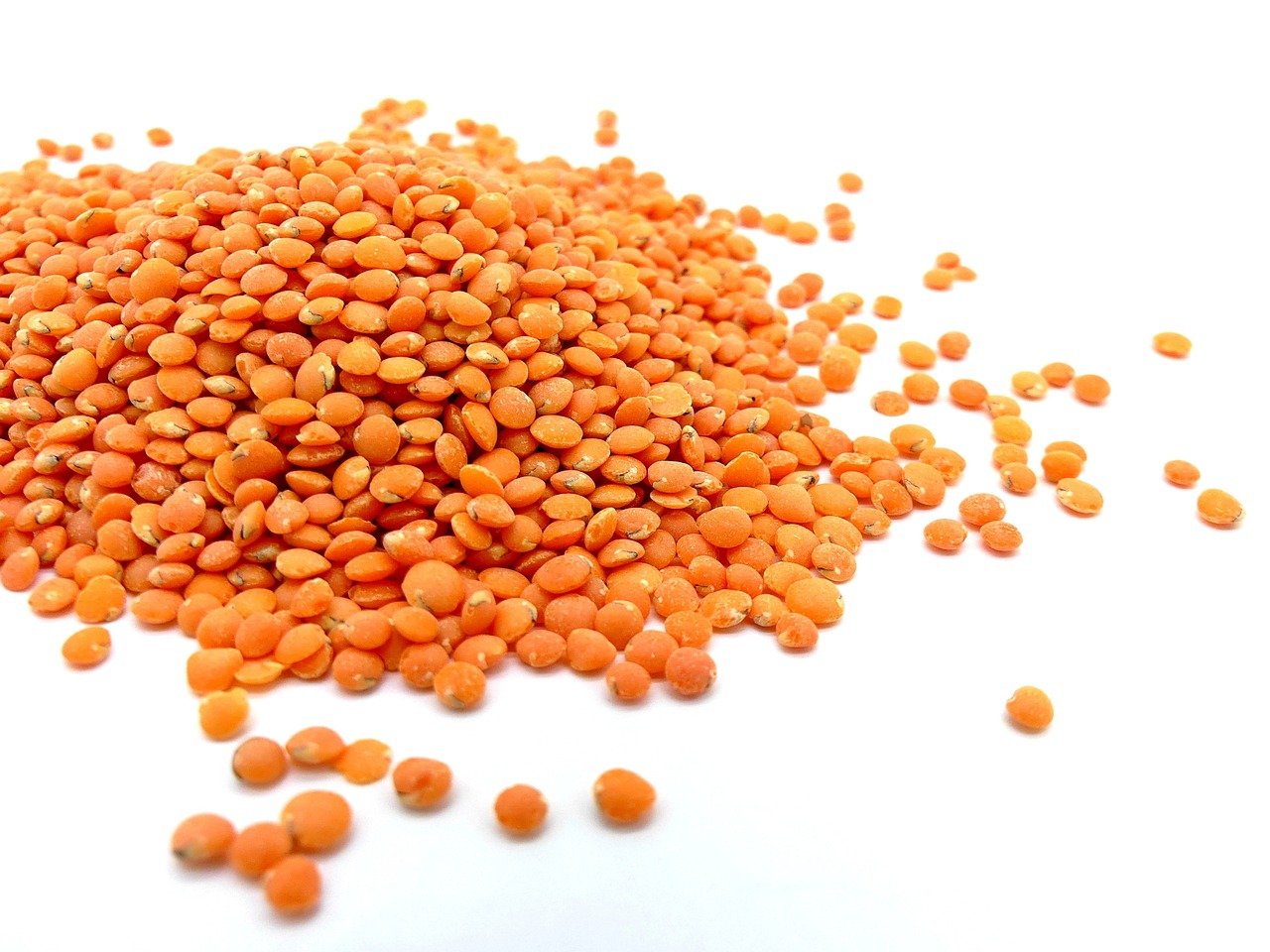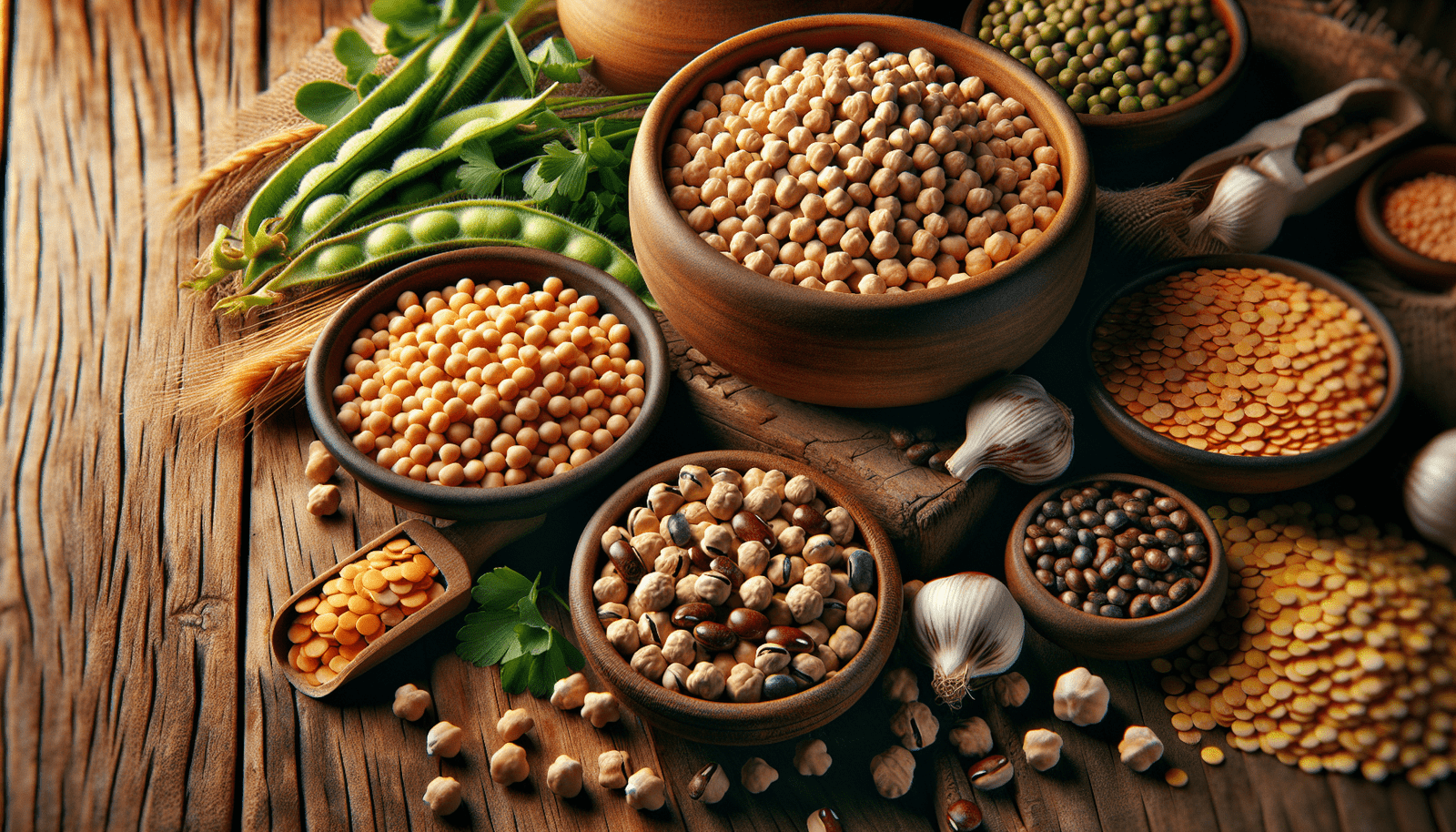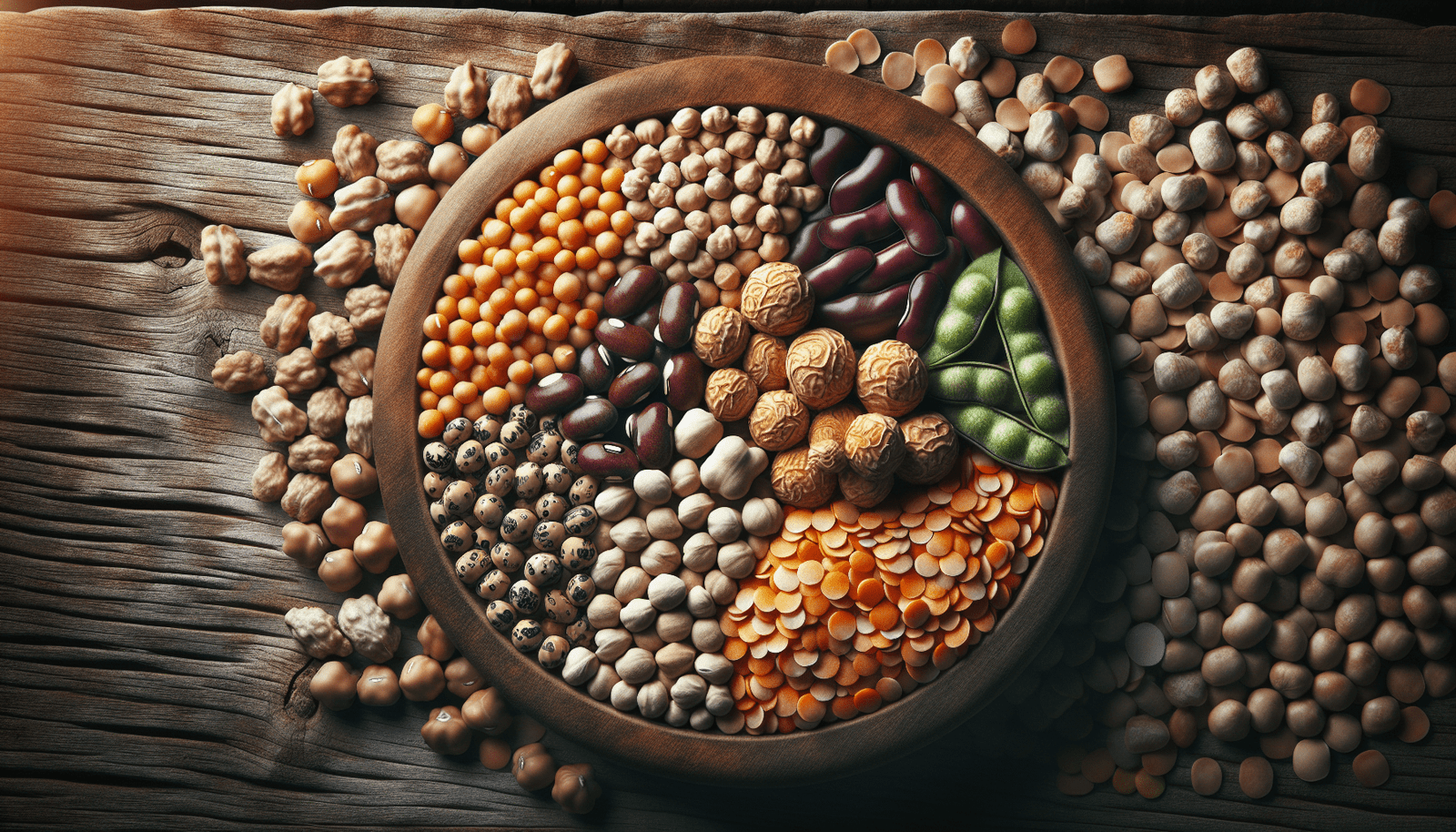Are you curious about how legumes fit into the celebrated Mediterranean diet? You might be familiar with this dietary pattern that emphasizes fresh fruits, vegetables, whole grains, and healthy fats, but legumes are a crucial component that deserves more attention. Their inclusion in the Mediterranean diet is not only about tradition but also boasts health benefits that can enhance your overall well-being. Let’s dive deeper into the role of legumes in this diet and see why they’re such a prized ingredient in the culinary traditions of the Mediterranean region.

Understanding the Mediterranean Diet
The Mediterranean diet is often hailed as one of the healthiest dietary patterns worldwide. It’s inspired by the traditional eating habits of countries bordering the Mediterranean Sea, such as Italy, Greece, and Spain. This diet is generally plant-based, with an emphasis on whole grains, fruits, vegetables, nuts, and legumes. Olive oil is the primary source of fat, and moderate consumption of fish, dairy, and red wine is encouraged. This balanced diet is associated with numerous health benefits, including lower risks of heart disease, stroke, and certain cancers.
Key Components of the Mediterranean Diet
To better understand where legumes fit into this diet, it’s helpful to briefly outline its other main components:
-
Fruits and Vegetables: You are encouraged to eat plenty of these for their vitamins, minerals, and antioxidants, which collectively boost your immune system and promote health.
-
Whole Grains: Foods like whole wheat bread, oats, and brown rice provide essential fiber, supporting digestive health and maintaining your energy levels.
-
Healthy Fats: Olive oil is central, rich in monounsaturated fats that are heart-friendly, alongside nuts and seeds.
-
Lean Protein: Fish, particularly rich in omega-3 fatty acids, along with poultry, provide necessary proteins with low saturated fat levels.
Role of Legumes
The role legumes play is often underappreciated, yet they are fundamental to the Mediterranean diet’s structure. They are consistent contributors not only to your nutritional intake but also to culinary diversity and tradition.
What Are Legumes?
Before discussing their specific benefits, it’s important to clarify what legumes are. Legumes are a family of plants whose fruit is enclosed in a pod. They include a variety of edible seeds like beans, lentils, peas, chickpeas, and even peanuts. These seeds, packed with nutrients, form a substantial part of global diets.
Types of Legumes in the Mediterranean Diet
In the context of the Mediterranean diet, you’ll encounter various legumes that add both flavor and nutrition to meals:
-
Chickpeas: Commonly used in dishes like hummus and falafel, chickpeas are versatile and provide significant health benefits.
-
Lentils: These are a staple, providing a quick source of nutrition with a variety of flavors and colors.
-
Fava Beans: These broad beans are often eaten raw or cooked and have been a traditional food source in Mediterranean countries.
-
Peas: Often overlooked, green peas are included in numerous Mediterranean recipes and enrich dishes with their sweetness and moisture.
Nutritional Profile of Legumes
Legumes are a powerhouse of nutrients. They are rich in protein, making them an excellent alternative for vegetarians and vegans. Their complex carbohydrates are slow to digest, keeping you full longer and managing blood sugar levels effectively. In addition, legumes are high in fiber, essential for your digestive health, and contain vital vitamins and minerals like iron, magnesium, and folate.

Health Benefits of Including Legumes in Your Diet
Incorporating legumes into your diet can lead to numerous health benefits that align with the overall goals of the Mediterranean diet. Here are some of the main advantages:
Supports Heart Health
Legumes are known for their heart-protective qualities. They are low in saturated fat and rich in fiber, which helps lower bad cholesterol and control blood pressure. Their potassium content further aids in managing hypertension, reducing your risk of heart disease.
Promotes Digestive Wellness
With their high fiber content, legumes support regular bowel movements, helping to prevent constipation. Fiber also promotes a healthy gut microbiome by feeding beneficial bacteria, contributing to better digestion and enhanced immunity.
Aids in Weight Management
Due to their protein and fiber content, legumes can help you feel fuller for longer periods. This can reduce overall calorie intake and assist in maintaining a healthy weight, supporting your efforts if weight management or loss is a goal.
Helps in Managing Blood Sugar Levels
The slow-releasing carbs in legumes are beneficial for controlling blood sugar levels due to their low glycemic index (GI). This makes them an excellent food choice if you are managing diabetes or at risk of developing it.
Provides Essential Nutrients
Beyond macronutrients, legumes are rich in micronutrients like iron, critical for energy levels, and folate, essential during pregnancy for fetal development. They also contain antioxidants, which help combat oxidative stress and inflammation in the body.

Incorporating Legumes into Your Mediterranean Diet
With a grasp of why legumes are so vital, the next step is how you can make them a regular part of your meals. Fortunately, legumes are incredibly versatile and can be adapted to numerous cooking techniques and recipes.
Cooking Tips for Legumes
Proper preparation is key to enjoying legumes at their best:
-
Soaking: Many legumes, especially dried beans, need to be soaked overnight before cooking. This reduces cooking time and helps in digestibility.
-
Cooking Time: Lentils and split peas tend to cook faster compared to larger beans like chickpeas. Always check individual packaging for times.
-
Seasoning: Enhance their flavors with Mediterranean staples like garlic, onion, herbs, and olive oil. These seasonings can complement the earthiness of legumes beautifully.
Recipes to Try
Here are some Mediterranean-inspired dishes that prominently feature legumes:
Classic Hummus
Ingredients:
- 1 can chickpeas
- 1/4 cup tahini
- 2 tbsp olive oil
- 2 cloves garlic
- Juice of 1 lemon
- Salt to taste
Blend these ingredients until smooth for a delicious spread, perfect with vegetables or whole-grain bread.
Lentil Soup
Ingredients:
- 1 cup lentils
- 1 onion, chopped
- 2 carrots, diced
- 3 cloves garlic, minced
- 1 tbsp olive oil
- Vegetable broth
- Herbs such as thyme or bay leaf for flavor
Cook all ingredients; this warm soup pairs beautifully with a fresh salad for a wholesome meal.
Fava Bean Salad
Ingredients:
- 1 cup cooked fava beans
- 1 tomato, diced
- 1/2 cucumber, chopped
- 1 tbsp mint leaves, chopped
- Olive oil and lemon juice dressing
Mix these together for a vibrant salad that’s refreshing and filling.
Legumes as Meat Substitutes
If you’re reducing meat consumption, legumes can serve as excellent substitutes. Try chickpea patties instead of beef burgers, or use lentils in place of ground meat in recipes like shepherd’s pie or tacos.

Common Questions about Legumes in the Mediterranean Diet
You may have some questions as you think of incorporating more legumes into your diet. Here are answers to some common inquiries:
Are Canned Legumes as Nutritious as Dried Ones?
Canned legumes are convenient and generally retain most of their nutritional value. Rinsing canned legumes helps to reduce sodium levels.
How Often Should Legumes Be Consumed in the Mediterranean Diet?
The Mediterranean diet suggests eating legumes multiple times a week, usually around three to four servings per week to mimic traditional practices.
Can Eating Legumes Cause Digestive Issues?
For some, the high fiber content might initially lead to bloating or discomfort. Gradually increasing your intake allows your digestive system to adapt.

Conclusion
Incorporating legumes into the Mediterranean diet aligns with a lifestyle that emphasizes health, tradition, and sustainability. By understanding their role and preparing them in simple, delicious ways, you can harness their full potential. Enjoy the vibrant flavors and nutrition they bring to your meals, savoring the essence of a diet that has stood the test of time not just for its delightful culinary experiences but also for its profound health benefits. Remember, embracing legumes in your diet is not only about nourishing your body but also about participating in a rich culinary heritage that celebrates life and longevity.


